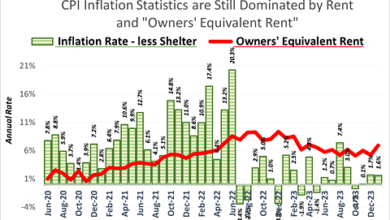A Limited‐Government Answer to Pregnancy and Childbirth?

In the evolving post‐Dobbs policy equilibrium, many Republican policymakers are looking for new policies to support mothers and children. Among other things, these policymakers are concerned with ensuring that mothers are adequately supported before and after birth. Policymakers are also worried that some mothers affected by the Dobbs decision and resulting policies will have limited resources to meet their babies’ needs.
These concerns are understandable. Although estimates vary, some suggest that the Dobbs ruling will result in a four percent increase in U.S. births. According to the Guttmacher Institute, a majority of women that received an abortion pre‐Dobbs were living below the poverty line, about half were single, and a third were cohabitating with a partner. It seems likely that more women giving birth after Dobbs will be looking for help than before the Dobbs decision.
In an effort to respond to these issues, and in an effort to appear more pro‐family (as opposed to simply pro‐life), Republican policymakers have proposed various policies which expand the scope of government. Recently, Tennessee Governor Bill Lee expanded Medicaid coverage for pregnant women and proposed covering two years’ worth of baby diapers. Oklahoma’s Governor Kevin Stitt has proposed expanding government‐funded fatherhood programs. And federal policy makers Marco Rubio and Mitt Romney introduced a bill to provide monthly cash benefits to families last year.
Policymakers sometimes forget that there are alternative ways to support families outside of creating new programs or expanding spending. In general, there are a wide variety of reforms that could increase affordability and make life easier for families that cost nothing at all. For pregnancy and childbirth specifically, it is also possible to increase support for single mothers by increasing accountability for noncustodial fathers.
One option is to require non‐custodial fathers to absorb a greater portion of the costs associated with pregnancy and childbirth. With this in mind, Virginia policymakers recently passed a bill that would allow single mothers to request monthly child support and reimbursement for pregnancy and delivery‐related costs from their child’s legal father. Specifically, the legislation would assign “the mother’s unreimbursed pregnancy and delivery expenses and those reasonable expenses incurred by either parent for the benefit of the child prior to the birth of the child” to the legal parents based on their gross incomes. This policy essentially extends the concept of child support to pre‐birth and birth expenses.
Virginia’s law is not the first of its kind, and two other red states have passed similar legislation: Utah was the first state to pass a law requiring fathers to pay half of a mother’s pregnancy‐related medical costs in 2021 and South Dakota passed a similar law earlier this year. Legislators in Arkansas have likewise proposed legislation requiring biological fathers to pay half of pregnancy‐related medical costs. And last year, federal policymakers introduced legislation that would allow pregnant mothers to receive child support.
The concept is seemingly popular across party lines. In a weighted survey conducted by YouGov that asked about extending child support payments to the time of conception, 47 percent of respondents supported the hypothetical law and 28 percent opposed it. Despite the legislation so far being proposed by Republican policymakers, the law was favored most strongly by Democrats, especially Democratic women (61 percent in favor, 16 percent oppose) compared with any other group in the survey.
In a perfect world, it would not be necessary to require fathers to pay for child support. But child support payments deal with the financial reality that single mothers face in the absence of a committed and financially supportive partner. They help apportion child‐related costs among parents when a preexisting agreement does not exist. Moreover, it seems reasonable to require fathers to absorb some of the cost of pregnancy and childbirth, given that women living in places with more restrictive abortion laws will be expected to do the same.
Policymakers should think clearly about the exact problem they are attempting to solve with any new law and be careful to consider potential unintended consequences when passing legislation in a delicate policy area. Still, Virginia’s law and those like it seem like an improvement on alternatives and a step in the direction of increasing both accountability and support.





